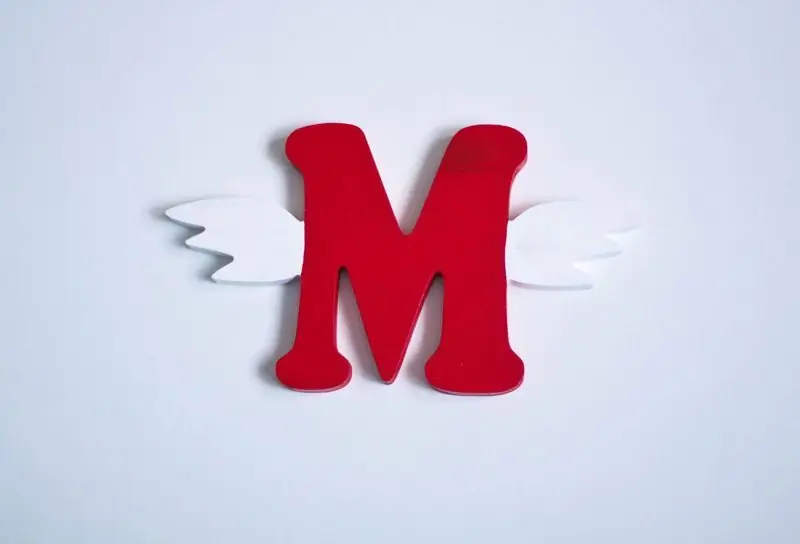
Table of contents:
- Author Bailey Albertson albertson@usefultipsdiy.com.
- Public 2023-12-17 12:53.
- Last modified 2025-01-23 12:41.
TOP 7 famous phrases that we use incorrectly

It is always pleasant to listen to a beautiful speech, and if a person skillfully uses catchphrases and metaphors, then communication with him becomes even more attractive. However, over time, the true meaning of popular phrases is often lost, their meaning is distorted, and as a result, the context of their use becomes completely incompatible with the true meaning. We propose to deal with some of the expressions that have suffered from misinterpretation.
About the dead, it's either good or nothing
The phrase "The dead are either good or nothing" is often used to mean that only good things can be said about the dead, and if there is something bad, it is better to remain silent. However, if we turn to the original, then the expression sounds differently, and the meaning is different. The ancient Greek politician Chilo (6th century BC) declared: "About the dead it is either good or nothing but the truth", that is, it is not forbidden to say bad things, but only if it corresponds to reality.

The original of the well-known expression does not prohibit saying bad things about the dead, it says that you should not tell a lie
End justifies the means
The catch phrase, according to different versions, may belong either to Niccolo Machiavelli, an Italian writer and politician, or to a member of the Society of Jesus (Jesuits) Antonio Escobar y Mendoza. One way or another, the expression became the basis of Jesuit morality and in the original had an exclusively religious meaning. The English philosopher Thomas Hobbes interpreted this idea as follows: a person who is not given the opportunity to use the means necessary to achieve his goals does not even make sense to strive for it, therefore anyone has the right to use tools and perform acts without which he himself and his aspirations to defend can not. The meaning in general is similar to that which is put into expression today, but there is no question of immorality and the need to use absolutely any methods in order to get what you want.
Love has no age
A phrase from the novel in verse "Eugene Onegin" is used to explain the feeling of love that has arisen at a too early or, on the contrary, old age, and sometimes - as a description of relationships between people with a large age difference. But if you read the entire passage with this expression, it will become obvious that the meaning in it is slightly different.
That is, Alexander Sergeevich Pushkin says that love at a young age is beautiful and fruitful, but love at an age that will no longer bear fruit is a source of not joy, but sadness.

Eugene Onegin says that love is available to all ages, but only in youth is it beautiful and fruitful
Live and learn
This phrase is known to everyone in the post-Soviet space, for many years it was a general call to gnaw the granite of science and never stop. The expression that sounded from the lips of Lenin is credited to him, although in fact the author is Lucius Annei Seneca. And the meaning of the phrase is distorted, because it is not fully used. The original reads as follows: “Live forever, learn how to live,” that is, we are not talking about teaching the sciences at all.

In the original, the expression sounds like "Live forever, learn how to live forever"
Business - time, fun - an hour
Many people use this phrase as an argument that most of their time should be spent on useful things, but leave only a small gap for entertainment. This understanding allows you to rephrase the expression as "Work hard, have fun", but the original meaning of the expression is not quite that. It is believed that folk wisdom comes from the times when "time" and "hour" were used as synonyms, which transforms the expression into "Business - time, fun - time", that is, both types of employment have their own time and do not mix them worth it, you just need to wait for the right moment.
The road to hell is paved with good intentions
It is impossible to say exactly who exactly belongs to the popular phrase “The road to hell is paved with good intentions”. There are two versions, according to the first, authorship belongs to the writer Samuel Jackson, according to the second (more common) - the 17th century English theologian George Herbert. A catch phrase is used in English and Russian, and in the second version it is most often interpreted incorrectly. Most people, using the phrase, want to emphasize that the desire to do good to people always turns against a person and creates problems for him. But to understand the true meaning, it is enough to turn to the context of the original: "Hell is full of good meaning and wishings", "Hell is full of good intentions and wishes." In the context of Protestant ethics, the expression means that really believers do good deeds and go to heaven, while sinners have only their good intentions, which have not been realized in actions. Thus, the full meaning of the phrase can only be reflected in its expanded version "The road to hell is paved with good intentions, and heaven is paved with good deeds."

If good intentions lead to hell, then good deeds are the path to heaven
The truth is in wine
They like to use this phrase with a glass of alcoholic drink, citing a philosophical thought as proof that it is better to look for a solution to a problem in a state of light intoxication. However, the phrase has a continuation, which changes its meaning “Truth in wine, health in water” (Pliny the Elder, Latin expression). It was used to emphasize that decisions made on a drunken head are better to be pondered already in a sober state, then they will be rational and sound.

In the original popular phrase, wine is contrasted with water, which contains health.
Surprisingly, some things, the meaning of which seems obvious and unambiguous to us, were actually created with a different message. Some of the catch phrases that so often sound from our lips are not used at all as they should.
Recommended:
Which Epilator Is Better For Home Use - Laser And Other Types, For The Face And Bikini Area, Options For Sensitive Skin, Basic Parameters And User Reviews

Appointment and types of epilators. Description of the action of the devices. How to choose the best among them. What are the rules for caring for him. Reviews of the best brands
How To Ignite A Cast Iron Pan Before The First Use And In Other Cases: Salt, Oil And Other Methods + Photos And Videos

How to ignite cast iron pans. Quick ways to get rid of engine oil residues, rust and carbon deposits
Interior Laminated Doors And Their Varieties With A Description And Characteristics, Advantages And Disadvantages, As Well As Use And Compatibility In The Interior

What are laminated doors: varieties and their characteristics. How to choose and install doors. Tips for the operation and repair of laminated doors
Antigadin For Cats: Instructions And Indications For Use, How To Use The Spray Correctly, Reviews, Cost And Analogues

Forms of release of funds Antigadin. What is it for and how to apply it. Advantages and disadvantages, comparison with analogues. Folk remedies "antigadins". Reviews
Why People Don't Remember Dreams And How You Can Remember Your Dreams

Why many people don't remember their dreams. Why is it so important to remember them. Techniques to help you remember your dreams after waking up
